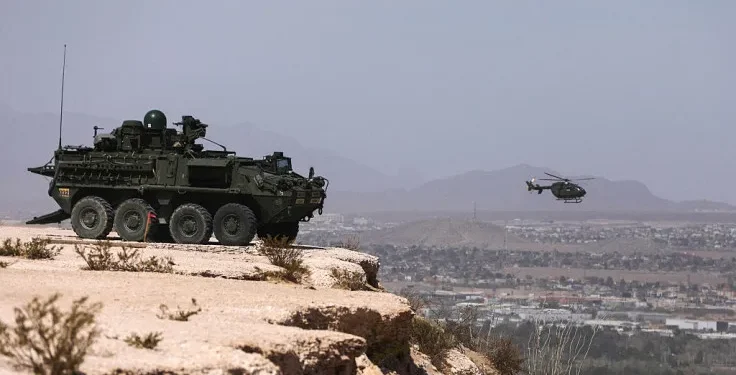Recently, dozens of migrants have been convicted for trespassing into a newly designated military zone along the southern border in Texas. This military zone is called a National Defense Area (NDA), which the government established to strengthen border security and allow military personnel to assist in immigration enforcement.
Specifically, 60 migrants pleaded guilty in the U.S. District Court for the Western District of Texas to charges related to illegally entering this restricted military zone. These prosecutions follow a directive from the U.S. Attorney’s Office for the region, headed by Acting U.S. Attorney Margaret Leachman, who described these convictions as a positive step to deter illegal immigration. She praised federal law enforcement and military partners for their work securing the border.
The NDA designation gives troops authority to detain individuals entering the area from Mexico, creating a tougher legal environment for migrants caught crossing there. The migrants convicted faced charges of both illegal entry and trespassing under military restrictions, with penalties that could add up to ten years in prison.
Contrast with New Mexico:
Meanwhile, a similar military zone was created along the border in New Mexico, but the legal outcomes have been different there. A federal judge, Chief U.S. Magistrate Judge Gregory B. Wormuth, dismissed charges against nearly 100 migrants arrested for entering the New Mexico NDA. The judge ruled that the government did not prove the migrants knew they were entering restricted military land.
The defense attorneys argued that warning signs were either inadequate or absent when migrants crossed, and some migrants crossed at night or between signs, making it difficult to know the area was off-limits. As Carlos Ibarra, a defense attorney, put it, the area is “just a bunch of desert” where people have historically crossed without military trespassing charges. This ruling highlights a legal challenge for the government: migrants must have notice of restricted land for trespassing charges to hold up in court.
Current Situation:
Despite the dismissal of trespassing charges in New Mexico, migrants there still face misdemeanor charges for illegal entry and remain in federal custody. Prosecutors have the option to appeal the dismissals or refile trespassing charges if they can present stronger evidence, such as proof that migrants were warned about the restricted status of the land.
In summary, while Texas courts are moving forward with convictions based on the new military border restrictions, courts in New Mexico have pushed back due to concerns about adequate notice and fairness. This creates a complex and evolving legal landscape around immigration enforcement in military border zones.









